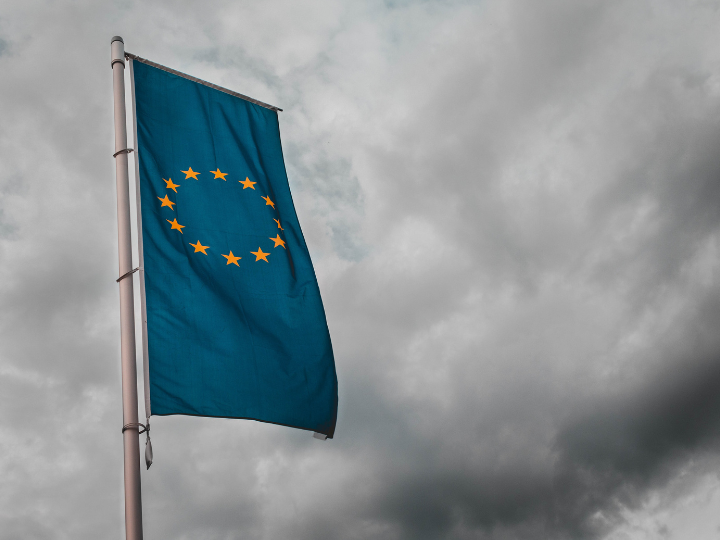by Giles Merritt*
Although Ukrainians face a second year of misery, an uncomfortable truth is that the European Union has been having, as they say, ‘a good war.’ Like NATO it has been strengthened by its response to Putin’s invasion. There’s another side to the coin, though, which is that its focus on internal reforms and urgent policy initiatives has become blurred and indistinct.
‘Polycrisis’ and ‘permacrisis’ are neologisms that well describe the challenges assailing Europe. Hungary apart, EU countries’ solidarity over Ukraine has been remarkable, but that cannot disguise the lack of progress in many areas that are key to Europe’s future.
The plus side is that the EU has so far weathered the Russian energy crunch, and is at last addressing its defence shortcomings. But the debit column in the balance sheet is much longer. Europeans have yet to tackle their serious innovation and productivity weaknesses with a credible industrial strategy. At the same time, Putin’s weaponisation of energy is sapping EU manufacturers’ competitiveness so badly that Belgian prime minister Alexander De Croo has warned “we are risking a massive deindustrialisation of the European continent.”
The EU’s stance towards the Kremlin has been unambiguous, but elsewhere its foreign policies seem muddled and sometimes contradictory. The European Union may be one of the geopolitical ‘Big Three’, but vis-a-vis an increasingly protectionist America and an assertive China they seem uncertain and ill-defined. Europe’s relatively generous development aid is failing to translate into soft power within Africa or the Arab world because there too the EU does not ‘speak with one voice’.
Two recent books shine lights on Europe’s awkward position, and the steps needed to improve it. Both authors draw on lifetime involvement in EU policymaking, and advocate bold measures to deepen the Union’s political integration.
The first draws attention to the fragmented ‘sovereign’ policies of member states as a threat to the EU’s future. “Unconstrained national sovereignty on tax matters,” says Loukas Tsoukalis, a noted Greek expert, “no longer makes any sense in an economic space where capital is very mobile.” His book ‘Europe’s Coming of Age’ urges an EU framework for common taxes to finance common policies.
Tsoukalis also turns to the way coalitions of the willing, what he terms “differentiated Europe”, have resolved some of the questions dividing the EU’s members. But he warns that resorting to these will not bring about radical institutional reform and better decision-making. That is the challenge former British MEP Andrew Duff deals with in his book ‘Constitutional Change in the European Union – Towards a Federal Europe’.
Duff has long championed an overhaul of those voting rules that require unanimity of EU governments because they so often lead to deadlock. The exploitation of this rule by Hungary’s president Viktor Orban to soften EU measures against Russia has added a new fervour to the campaign for more ‘qualified majority voting’ (QMV) – meaning 55 per cent of member states or a bloc representing 65 per cent of the EU’s population.
The device that would allow switching to this is Article 48(7) of the Treaty of European Union, containing what lawyers and insiders call the passerelle (or bridging) clause. The snag is that it can only be introduced unanimously. Germany and France head a consensus of EU states in favour, with Hungary and others opposed to it. As Duff remarks, “the absurdity of this constitutional impasse has become plainly obvious”.
Last year saw a flurry of media interest in the issue when the EU’s Conference on the Future of Europe raised hopes that it would open the way to QMV. The conference was a damp squib, but a subsequent vote in the European Parliament has inched QMV forward. However, set against the speed with which the EU’s problems are worsening, this hoped-for constitutional overhaul is progressing at a snail’s pace.
European unity in the face of Russian aggression is, meanwhile, disguising the scale of strategic difficulties assailing EU countries. Agriculture’s decline and rural desertification reflect the uncomfortable fact that two-thirds of Europe’s farmers are over 55 years old. Europe’s one-tenth share of the global semiconductor business is shrinking when the market is set to double to a trillion euros a year by 2030. EU countries risk being sidelined in the fourth industrial revolution that’s re-shaping the global economy.
All this must be set against a background of demographic change and ageing in Europe that promises soaring costs and plummeting living standards. There is, however, a silver lining to the cloud of Putin’s invasion; it might yet bring about an EU political crisis profound enough to trigger radical reform. As Loukas Tsoukalis remarks: “It remains to be seen whether a full-scale war on its (Europe’s) soil, namely the war in Ukraine, is the required catalyst.”
*Founder of Friends of Europe
**first published in: Friendsofeurope.org




 By: N. Peter Kramer
By: N. Peter Kramer
